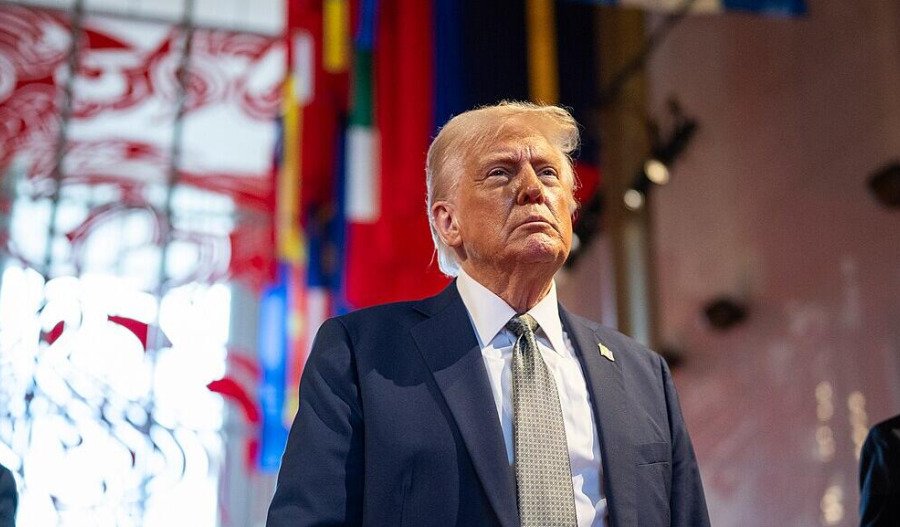An executive order to overhaul the United States' federal election process - including required documentation of citizenship proof - has been met with hostility by Democrats who say that concerns over illegal immigrants casting ballots are unfounded and a "non-issue".
The order says the U.S. has failed “to enforce basic and necessary election protections” - calling on states to work with federal agencies to share voter lists and prosecute election crimes - with federal funding to be taken away for non-compliance.
“Under the Constitution, State governments must safeguard American elections in compliance with Federal laws that protect Americans’ voting rights and guard against dilution by illegal voting, discrimination, fraud, and other forms of malfeasance and error,” the executive order states.
“Yet the United States has not adequately enforced Federal election requirements that, for example, prohibit States from counting ballots received after Election Day or prohibit non-citizens from registering to vote.”
Why all the fuss?
The contention around voter ID laws stems from states' self-governance and federal standardisation efforts and alignment with political parties’ rational election strategies.
Conservatives are looking to dot the i’s and cross the t’s with a more uniform approach to stopping voter fraud. The Left fears changes would be too ‘burdonsome’, disenfranchising minorities, the elderly and lower socio-economic sections of society that would struggle to meet more stringent voting requirements.
Yet mandatory voter ID is not exactly new for democracies and reforms were something of a moot point when they were made in countries such as France, Germany, Japan, South Korea and notably India - the most populous country in the world - as they were seen as a logical step to voting modernisation.
Voter ID laws across America are fractured, and changes aim to streamline voting practices federally, yet ultimately require many changes at the state level due to intrinsic and long-standing self-governance.
As of 2023, 35 out of 50 states have some form of voter ID law in place, with 18 of those already requiring photo ID to vote.
Independent analysis by the Heritage Foundation in 2023 showed that Voter ID laws were popular, and had "no negative effect on registration or turnout overall or for any specific group defined by race, gender, age, or party affiliation".
Heritage found that eligible voters across all demographics supported voter ID laws in virtually every poll by almost 80%.
“This typically includes more than 60% of Democrats.”
Votes against
Opponents of voting ID requirements say that minorities and disadvantaged groups would see the additional red tape restrict their access to participate in elections.
Democrat U.S. Senator Alex Padilla, who has been vocally against the law changes, fired back against the move, saying President Trump’s executive order does nothing to improve federal election safety.
“What it would do is disenfranchise millions of eligible American voters,” Padilla said in a press release.
“President Trump is a notorious election denier [and] lacks the authority to implement many of the changes laid out in this illegal executive order, which also ignores the requirements set forth in the bipartisan Help America Vote Act.
“Free and fair elections are the foundation of our democracy and attempts by the President to make it harder for eligible voters to participate hurts all Americans, regardless of party.
“I stand ready to work with anyone on responsible solutions to improve election security and increase voter participation, but this sham order is not the answer.”
Last week, Padilla and Senator Dick Durbin led 29 democratic Senators in urging U.S. Attorney General Pam Bondi to continue the essential work of the Department of Justice’s Election Threats Task Force, which directs efforts to protect election officials from rising threats and acts of violence.
Votes for
The Republicans meanwhile, are attempting to push their SAVE (Safeguard American Voter Eligibility) Act through Congress to make it mandatory for all U.S. States to require proof of identity at the ballot box.
They argue that increased technology, accessibility to vote and identification requirements for a range of services are already in place can be easily implemented at a Federal level.
The Proceedings of the National Academy of Sciences (PNAS), a peer reviewed journal of the National Academy of Sciences (NAS) with bi-partisan support came to this conclusion:



